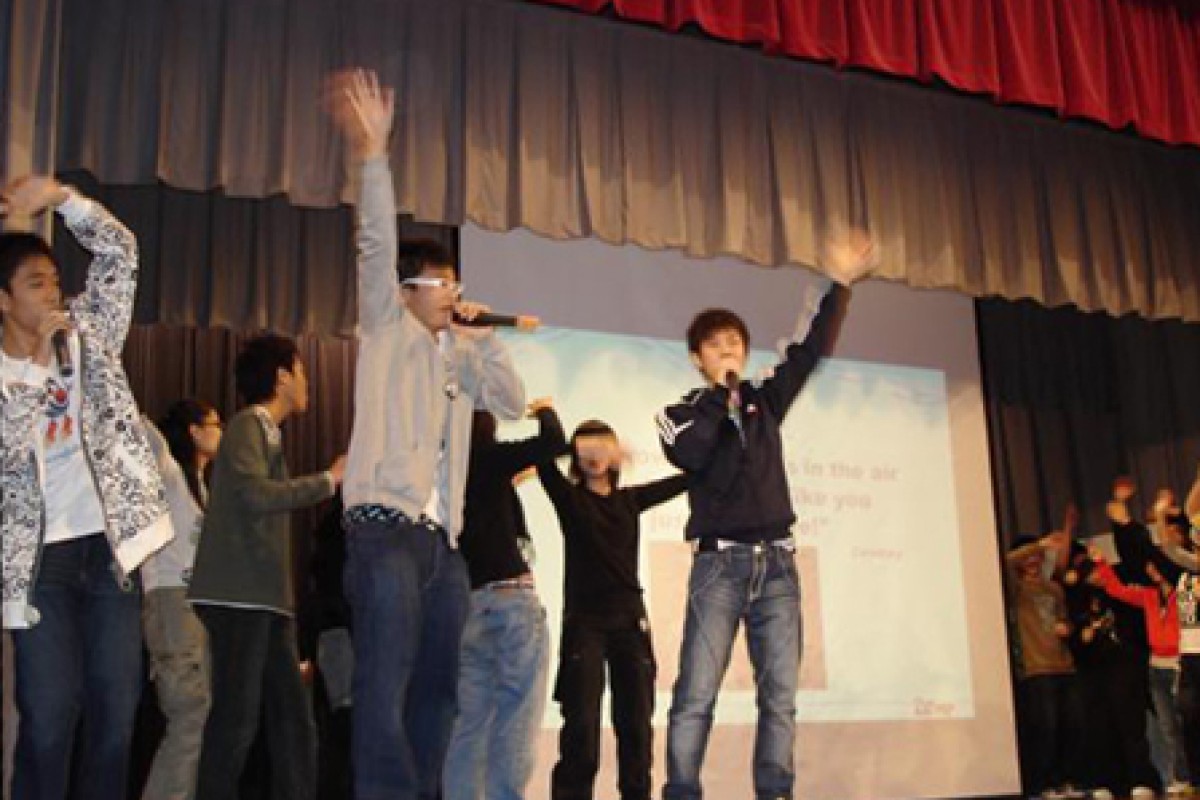 Students perform their own rap songs during an ELT event in their school. By using American street slang and hip-hop music, teachers hope to kindle students' interest in the joys of learning English
Students perform their own rap songs during an ELT event in their school. By using American street slang and hip-hop music, teachers hope to kindle students' interest in the joys of learning EnglishThat's why you won't find many of them recommending hip-hop music as a way to learn English. The genre's verbal mannerisms are seen as too low-brow. But not to linguist Angel Lin Mei-yi, an associate professor at the University of Hong Kong. The veteran educator thinks hip-hop music could be the answer to making English learning fun for local students.
"For a lot of Hong Kong students, English is just an academic subject," she says. "If you have to learn it for exams, you don't enjoy the language."
Local schools have been criticised for failing to introduce fun ways to teach English. Many teachers prefer to rely on spoon-feeding and exam-oriented methods.
When students graduate from high school, "they may know some basic grammar and vocabulary, but they don't have the confidence to use English and don't feel that English is a friend," Lin explains.
The linguist uses lyrics with pounding beats to endear the language to them. In 2006, Lin launched the English Language Teaching (ELT) project, bringing hip-hop to 30 schools. Hip-hop, Lin says, is a form of verbal art. Rappers make use of various literary devices from rhymes to metaphors, just like poets. "Rap is rhythm and poetry," she stresses.
Hip-hop songs tend to have linguistically challenging lyrics. They require students to get the hang of the language's nuances before being able to rap themselves.
And many have. Students from TWGHs Wong Fut Nam College wrote their first rap song, Reading Rap, after a few workshops. Their peers from PAOC Ka Chi Secondary School wrote Teenage Rap.
Lin's learning-via-music approach works because students won't feel put off or bored. Through rapping, she suggests, learners gain a better understanding of word-sound relationships. That way, they can learn to pronounce longer, multisyllabic words - such as the word "multisyllabic" itself.
But it hasn't all been a smooth ride. She had a hard time convincing some schools that hip-hop was not just about "bling" and "gangsta" rap. The purpose of true hip-hop, she explains, is to let young people speak their minds. The genre can help keep them away from anti-social behaviour.
She also takes issue with the idea that hip-hop slang is bad English. "As English teachers, we should be teaching a living language," the linguist says.
Students, she adds, should be exposed to different kinds of speaking styles from academic lectures to inner-city street slang. "We want to help students break the psychological barrier," Lin says.
It's time Hong Kong got rid of its British colonial linguistic heritage, which sees only posh Queen's English as the only proper form of expression. "English belongs to everybody," Lin insists.
You might also like:
- A local school's decision to scrap textbooks helps students to learn English effectively.
